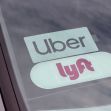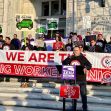The U.S. Supreme Court declined the opportunity to review California’s test for determining whether a worker should be classified as an “employee” or as an “independent contractor.” The denial of certiorari comes as the National Labor Relations Board issues its own more stringent test for classifying workers.
Originally signed into law in September 2019, California’s embattled Assembly Bill 5 lays out a standard for defining whether a worker is classified as an independent contractor or as an employee. The employee-friendly law sets out a relatively stringent standard for designating a worker as an independent contractor, which would exempt employers from the need to adhere to minimum wage, overtime rules, benefits requirements, and other worker protections. Under the “ABC test” codified by AB 5, most wage-earners--even gig workers--must be legally classified as employees.
The law faced legal challenges before it even made its way to the Governor’s desk. Rideshare companies Uber and Lyft argued the law would ruin their business model by classifying all gig workers as employees, and representatives of other industries like freight and trucking fought against the law as well.
Uber and Lyft managed to get a ballot initiative passed that effectively exempts gig drivers from the more stringent AB 5 test. Other employers have continued to challenge AB 5’s purview and legality from every conceivable angle. The trucking industry attempted to carve out an exemption for owner-operated truck drivers, an approach that was rejected by the Ninth Circuit Court of Appeals in April 2021. In July 2022, the Supreme Court declined to hear the case, letting the Ninth Circuit’s ruling stand.
Taking a different approach, a California non-profit contended that the law violated the First Amendment as it applied to political canvassers, representing a content-based restriction on speech. The Ninth Circuit rejected the challenge, stating that AB 5 “does not restrict what, when, where, or how a worker may communicate.” Rather, “California’s classification of a worker as an employee or an independent contractor is ‘aimed at the employment relationship—a traditional sphere of state regulations.’ It is a regulation of economic activity, not speech.”
On Tuesday, June 20, the Supreme Court rejected a petition for cert, once again refusing to entertain an AB 5 challenge and, in effect, allowing the law to stand.
The latest victory for AB 5 comes right on the heels of the National Labor Relations Board imposing its own stricter independent contractor test. On June 15, the NLRB declared it would return to a more employee-friendly standard, reversing a Trump-era precedent that purported to prioritize a worker’s “entrepreneurial opportunity” in determining whether the worker was an employee or independent contractor.
The NLRB’s latest ruling relegates “entrepreneurial opportunity” to be merely one of many factors the Board will consider in a fact-intensive analysis of an employer’s workforce in order to properly classify the workers. The Board will use an “independent business analysis,” which involves taking a more “realistic” look at a worker’s opportunities, including whether the putative contractor: “(a) has a realistic ability to work for other companies; (b) has proprietary or ownership interest in their work; and (c) has control over important business decisions.”
While more employee-friendly than the Trump-era rule, the NLRB explicitly rejected requests to fully adopt the “ABC test” utilized in California. Employers nationwide will need to carefully review state and federal rules to ensure they do not misclassify their workers under local or federal law.






